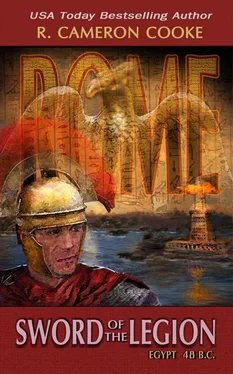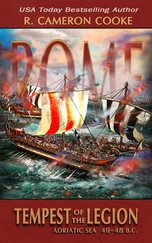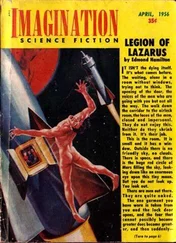R. Cooke - Rome - Sword of the Legion
Здесь есть возможность читать онлайн «R. Cooke - Rome - Sword of the Legion» весь текст электронной книги совершенно бесплатно (целиком полную версию без сокращений). В некоторых случаях можно слушать аудио, скачать через торрент в формате fb2 и присутствует краткое содержание. Год выпуска: 2014, Издательство: Orbis Publishing, Жанр: Исторические приключения, на английском языке. Описание произведения, (предисловие) а так же отзывы посетителей доступны на портале библиотеки ЛибКат.
- Название:Rome: Sword of the Legion
- Автор:
- Издательство:Orbis Publishing
- Жанр:
- Год:2014
- ISBN:нет данных
- Рейтинг книги:5 / 5. Голосов: 1
-
Избранное:Добавить в избранное
- Отзывы:
-
Ваша оценка:
- 100
- 1
- 2
- 3
- 4
- 5
Rome: Sword of the Legion: краткое содержание, описание и аннотация
Предлагаем к чтению аннотацию, описание, краткое содержание или предисловие (зависит от того, что написал сам автор книги «Rome: Sword of the Legion»). Если вы не нашли необходимую информацию о книге — напишите в комментариях, мы постараемся отыскать её.
Rome: Sword of the Legion — читать онлайн бесплатно полную книгу (весь текст) целиком
Ниже представлен текст книги, разбитый по страницам. Система сохранения места последней прочитанной страницы, позволяет с удобством читать онлайн бесплатно книгу «Rome: Sword of the Legion», без необходимости каждый раз заново искать на чём Вы остановились. Поставьте закладку, и сможете в любой момент перейти на страницу, на которой закончили чтение.
Интервал:
Закладка:
“What in Hades are they doing?” a soldier near the rail said incredulously, pointing at the fort.
Lucius squinted his eyes in the wind to see a mass of Roman shields emerge from the gates and earthworks. They quickly began to reform in the three testudo formations, as before, and again were taken under a heavy fire from the Alexandrian vessels.
This was not according to plan. Why, in Jupiter’s name, were the cohorts leaving the fort?
At that moment, a chill ran down Lucius’s spine as he deduced the only explanation for it.
Caesar’s entire plan was predicated on the fact that the fort’s machines would drive off the enemy fleet. What if the enemy had come to the same conclusion? What if they had destroyed or removed the engines? That would explain the scanty defense put up by the garrison. They had fled, yielding to Caesar a useless fortification that would quickly become his death trap. Caesar now had to move quickly to get out of the trap, and that certainly would explain why the cohorts were now flooding back out of the fort. But as Lucius watched, fully expecting the bristling formations to head back to the beach and the waiting transports, they instead took a left turn and began marching north up the mole. The mole was only wide enough to fit a single cohort, so the three testudos moved out onto the mole one after the other, all the while under the relentless missile fire from the enemy ships. Some of the enemy ships were literally bumping along the western side of the mole, moving along with the cohorts, which they pelted with a galling rain of stones and missiles. The freshly landed Roman engineers quickly scurried inside the creeping formations for protection, though the armored testudos offered little of it from the enemy ballistas, which were now being utilized to their fullest effect. Giant flaming bolts flew in abundance, wiping out entire files of men in a single fiery breath.
Lucius cursed inwardly as he realized that Caesar was not going to retreat. Certainly, the proud Caesar was determined not to let his enemy win the day. Ships or no ships, he was going to march up to the bridge and do what he had come to do, and he would not leave until the southern gap in the mole was destroyed.
It was a hasty, desperate, and foolish act, and one that played directly into the enemy’s hands. By marching his cohorts out onto the mole, Caesar had effectively walked into another trap, and this one was much more deadly.
Lucius watched helplessly as the trap was sprung.
A mass of armored infantry suddenly appeared at the edge of the city, numbering at least a thousand spears. They began marching in quick step across the plain toward the mole. At the same time, the hitherto docile ships in the rear of the enemy fleet suddenly began to move. Lucius saw the masts of the enemy vessels dancing above the mole. They moved in groups, a dozen dashing to the right and a dozen more to the left. Lucius quickly surmised that the craft were landing enemy troops on the far side of the mole, to the north and south of Caesar’s position. Moments later, his fears were confirmed when pikemen and swordsmen appeared on the mole in the hundreds. They immediately formed into phalanxes, the points of their fourteen-foot sarissas gleaming in the sun. Caesar was now surrounded, with well-armed infantry closing in from the north and south and a devastating fire coming from the enemy ships. Only the rocky eastern shoreline of the mole was left open. It was Caesar’s only hope of escape. The quick-thinking Rhodian captains, who had pushed their transports back into the harbor at the first sign of enemy troops from the city, realized the Roman general’s plight and drove their vessels to converge beside the mole near Caesar’s position.
But, even now, it was clear that Caesar was not intending to retreat.
As the enemy phalanxes approached from the north and south, a few of the less stalwart legionaries broke from the testudos, shedding their weapons and equipment and diving into the harbor. But after these few fled, the centurions quickly closed up the gaps and, by and large, the formations remained intact. The cohorts knew they would be in their element once close combat was joined, and they needed only to hunker beneath their interlocked shields until Caesar gave the order to attack. But the Alexandrians were not fools. They well knew the strength of the Romans, and they also knew the weaknesses. Instead of pressing in to squeeze the Roman cohorts like a vice, the Alexandrian phalanxes came to a halt just outside of javelin range. There they waited allowing the unremitting missiles from the fleet to continue their deadly work. Bit by bloody bit, the giant bolts tore gaps in Caesar’s ranks, skewering two or three men at a time, severing heads and legs, and turning the hot, shadowy spaces beneath the shields into intolerable shelters of butchery.
Lucius saw a score of half-naked warriors break from the Roman ranks, their long hair and beards streaming beneath conical iron helmets. Lucius knew these to be Caesar’s Gallic bodyguard. The Gauls broke, not toward the transports, but toward the enemy. The hopelessness of the situation had worked them into a mad frenzy, and now they chose to die like warriors instead of penned pigs. Lucius could hear their wild howls across the water, a howl he had heard on a dozen gray battlefields far from this place. Holding their long swords high, they charged the waiting phalanxes with a ferocity that made several of the Alexandrians run.
But the bulk of the packed enemy troops stood their ground. The handful of charging long swords was no match for the massed enemy. The charge of the Gauls melted away before the jabbing and thrusting sarissas until it was nothing more than a cluster of twitching bodies beneath blood-tipped pikes.
More Romans now ran, leaping from the rocks into the water by the dozen. Some managed to swim for the transports, but others sank out of sight under the weight of their armor. Like the seeds of a dandelion blowing in the wind, the testudos came apart. A few of the legionaries followed the Gauls’ example and attacked the phalanxes. A few held their ground around Caesar’s plumed helmet. But even the great general could not bring order to this chaos. The men around him were falling by the score. A complete disaster was in the making.
Lucius glanced at the other ships in the reserve fleet. The decks of every vessel were crowded with onlookers, but no attempt was afoot to reinforce their beleaguered general. They had Caesar’s express orders, not to attack unless so ordered by him. And that order had not yet come.
Lucius had had enough.
“Take us in!” he commanded the transport’s captain.
“But, we have orders, sir!”
In an instant, Lucius had produced his gladius and was pressing it to the reluctant man’s throat. “Closer to the mole! And hurry, damn you!”
Whips cracked, the drummer beat out a quick rhythm, the bireme slaves pulled on their oars, and the vessel thrusted toward the mole. Lucius directed the captain to drive at the cluster of surviving Romans as if they planned to help the pressed troops in escape. But at the last moment, he ordered a change of course. The transport veered to the right, and made all speed for the enemy line that was working its way down the mole from the north. The Alexandrian phalanx paid no attention to the single bireme that now headed directly for them. They were far too consumed with the prospect of capturing the great Caesar.
“Come on, you Pompeian dogs!” Lucius shouted. Then, with a war cry, he leapt from the bow just as it touched the mole, flying into the tightly packed enemy ranks. Not expecting an attack from their left, the pikemen could not turn their long and interlaced spears in time to meet the new danger. Lucius had left his shield on the galley in order to manage the jump, but he did not need it. He came down on two men with his gladius swinging, slicing into their necks before either knew what had killed him. Following their centurion’s lead, the men of the century also jumped from the galley into the fray, adding to the confusion that was quickly spreading through the enemy phalanx. Within moments, three score jabbing gladii were mercilessly cutting their way through the formation with a fiendish fury, stabbing one Alexandrian in the groin after another, subjecting the disoriented enemy to the machine-like meat grinder that every Roman legionary became in battle. Three inches in, pull out, stab again, move on. Blood flowed down bare legs. Entrails oozed between scaled armor plates. The song of the gladii sang, and the enemy died. Lucius’s cross-plumed helmet led them on, driving farther and farther into the tight phalanx. Some of Caesar’s troops, seeing the success of Lucius’s men, rushed forward to attack the phalanx’s front.
Читать дальшеИнтервал:
Закладка:
Похожие книги на «Rome: Sword of the Legion»
Представляем Вашему вниманию похожие книги на «Rome: Sword of the Legion» списком для выбора. Мы отобрали схожую по названию и смыслу литературу в надежде предоставить читателям больше вариантов отыскать новые, интересные, ещё непрочитанные произведения.
Обсуждение, отзывы о книге «Rome: Sword of the Legion» и просто собственные мнения читателей. Оставьте ваши комментарии, напишите, что Вы думаете о произведении, его смысле или главных героях. Укажите что конкретно понравилось, а что нет, и почему Вы так считаете.












